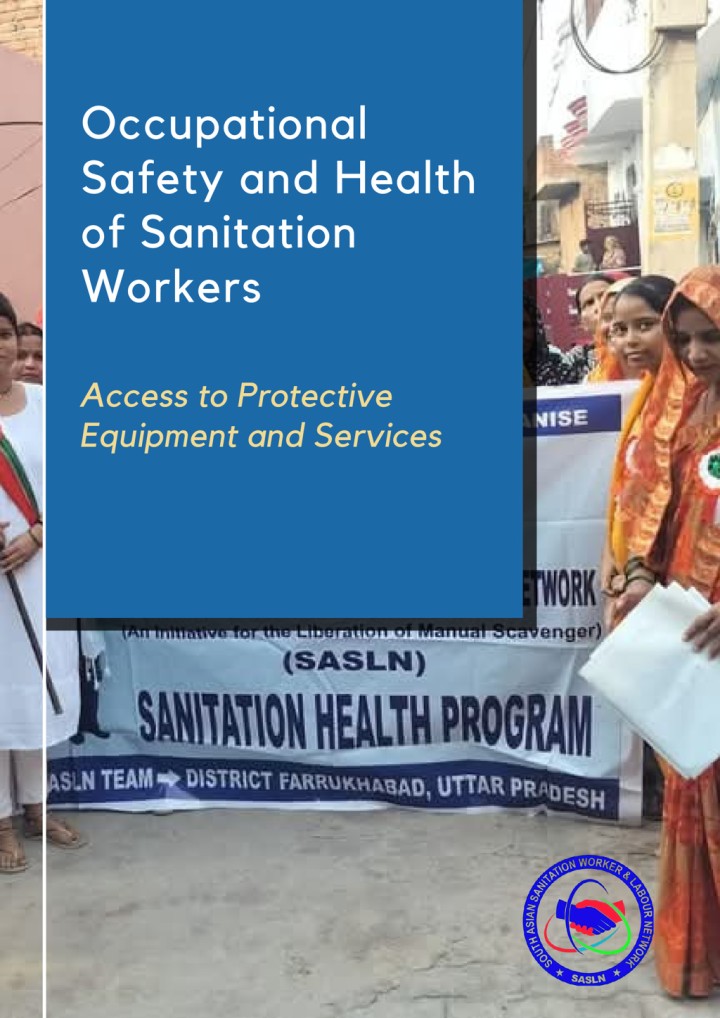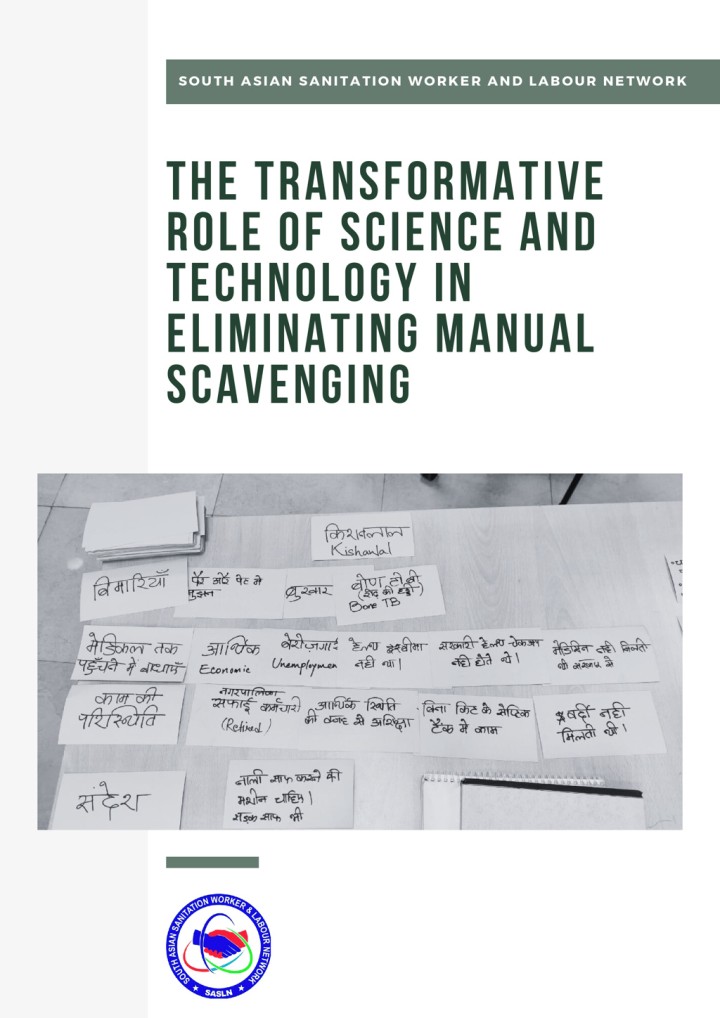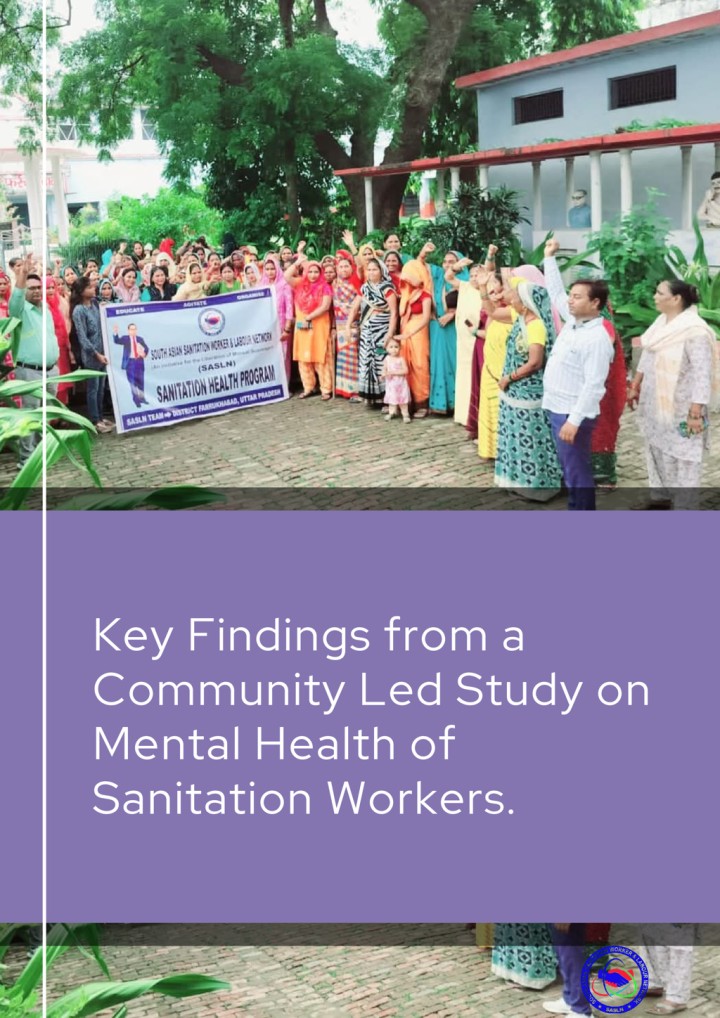Documents & MediaResources
© BORDA
Search for:
3 resources found with your current selection

SASLN (2025) Occupational Safety and Health of Sanitation Workers: Access to Protective Equipment and Services
This collaborative study by the South Asian Sanitation Worker and Labour Network (SASLN) examined occupational safety and health conditions for sanitation workers across 10 Indian states. Through a structured survey involving over 500 participants, the study identified critical gaps in access to protective equipment, healthcare, social security, and training. Findings reveal that a majority of workers operate without adequate safety gear, often under informal employment conditions, with limited access to hygiene facilities or mental health support. The study also highlights the need for gender-sensitive tools and inclusive workplace practices.

SASLN (2024) The Transformative Role of Science and Technology in Eliminating Manual Scavenging
Indian society is marked by deep- rooted complexities, where identities are shaped not only by religion, and class but also by caste that creates social hierarchies. Among the most dehumanizing manifestations of this structure is the practice of manual scavenging, where one person is forced to clean another' s waste. This report by the South Asian Sanitation Worker and Labour Network (SASLN) explores how science and technology can play a critical role in eliminating manual scavenging in India. Drawing on field research, expert interviews, and technology reviews, the study identifies gaps in policy implementation and highlights the potential of mechanized sanitation tools to replace hazardous manual labour.

SASLN (2024) Key Findings from a Community Led Study on Mental Health of Sanitation Workers
Sanitation workers in India, predominantly from marginalized communities, play a critical role in maintaining public health and ensuring the cleanliness of urban and rural environments. However, despite their essential contributions, they endure deeply entrenched social, economic, and psychological challenges that severely affect their overall well-being. The report assessed awareness, accessibility, and affordability of mental health support and identified systemic gaps in care and employer practices.
